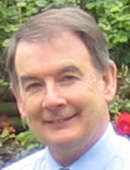Strengthening Rural Education: Alternatives in Enhancing Education in Rural Areas

Professor John Pegg
Director, SiMERR National Research Centre
School of Education
University of New England, Armidale, Australia
Friday, August 3, 9:00-10:00, SUB Ballroom A, Keynote Address
Australia continues to be at cross-roads in terms of equity of opportunities and achievements for students in rural and remote areas compared to those of their metropolitan peers. Is this the perspective of other Countries? Despite numerous reports on rural education in Australia, and continued efforts by State and Territory governments, to address the situation little, if anything, has changed. In Australia: country-wide comparisons using national and international tests show continued disparity of achievement among remote, provincial and metropolitan students; rural schools continue to be staffed by Australia’s least experienced teachers; and there is no nationally cohesive framework to address systematically the concerns and issues that have plagued education provision in rural Australia for several decades. Do these points resonate with issues in rural schools in other countries? This presentation considers possible alternatives for rural Australia (and possibly other countries) through the lenses of student learning, teacher quality and government policies.
Bio – John Pegg began his career as a secondary mathematics teacher. Currently, he is Professor and Foundation Director of the National Centre for Science ICT and Mathematics Education for Rural and Regional Australia (SiMERR National Research Centre) based at the University of New England, Armidale, Australia. His work is far-ranging, and he is known for his contribution to theory-based cognition research in Mathematics Education and Assessment, especially linked to the SOLO Model. He is a Chief Investigator for the brain-based, Australian Research Council Australian Science of Learning Research Centre based at the Queensland Brain Institute, Brisbane, Australia.
John advocates for equality of educational learning outcomes for students and teachers regardless of their geographic circumstance. He has strong links with schools, professional teaching associations, and educational authorities in Australia and overseas, as a consultant/evaluator in a diverse range of educational contexts. He recently completed a five-year term as the Minister’s nominee on the peak education body in New South Wales. In the past few years John has been team leader on many significant large-scale Australian and International projects linked to: underachieving learners in basic Mathematics and Literacy, state-wide diagnostic testing in Science, developmental-based assessment and instruction, validation of the Australian National Professional Standards for Teachers, investigating school faculties achieving outstanding student-learning outcomes (ÆSOP study), and promoting system-wide quality reforms in teacher education in the Philippines through the establishment of the Philippine National Research Centre for Teacher Quality (RCTQ) and the development into policy of the Philippine Professional Standards for Teachers (PPST).
